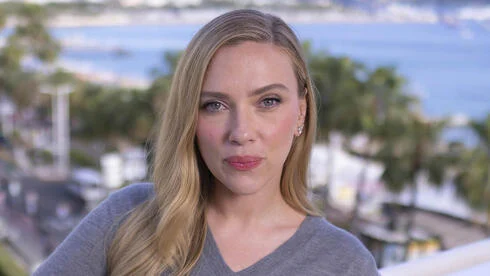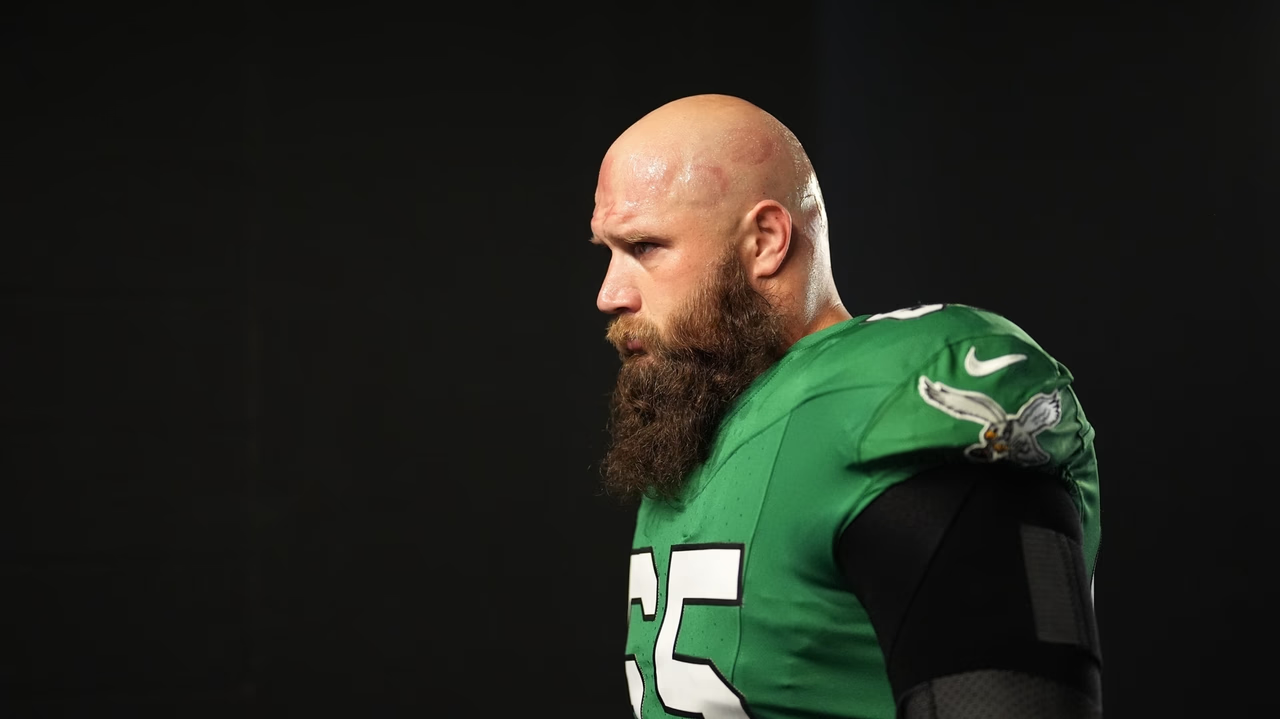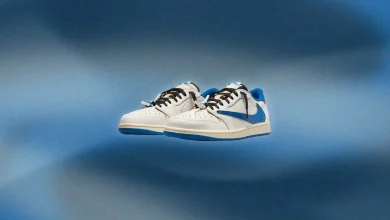Scarlett Johansson on her Jewish roots: ‘I lost many relatives in the Holocaust — this film is for them’

Scarlett Johansson, one of Hollywood’s biggest stars, has never hidden her Jewish roots. Twenty years ago, she happily told me, “My mother is Ashkenazi Jewish and my father is Danish. We celebrate the holidays, including Yom Kippur, Hanukkah and Passover. My grandmother spoke Yiddish, but unfortunately I never learned the language. I’m a New York Jew who talks with her hands.”
Years have passed since that meeting, and Johansson has solidified her position at the top of Hollywood. Her credits include blockbuster hits like Marvel’s “Iron Man 2,” the “Avengers” and “Captain America” films, as well as acclaimed movies such as “Lost in Translation,” “The Man Who Wasn’t There” and several collaborations with Woody Allen.
Eleanor the Great – trailer
(Courtesy of Forum Film)
When Johansson decided to direct, she chose to return to her roots. Her debut feature, the dramedy “Eleanor the Great,” centers on a 94-year-old Jewish heroine and explores Holocaust memory and the legacy of survivors.
The premiere of “Eleanor the Great” took place at this year’s Cannes Film Festival. The film was featured in the “Un Certain Regard” section and competed for Best First Feature. The premiere was emotional, and the packed theater buzzed with anticipation. Tickets were nearly impossible to find. Everyone wanted to see the Hollywood star’s directorial debut. When the credits rolled, the audience rose to its feet and applauded for several minutes. Johansson could not hide her emotion.
10 View gallery
Now also a director: Scarlett Johansson
(Photo: Joel C Ryan/Invision/AP)
When we met the next day in the suite of a grand hotel on the French Riviera, I told Johansson how everyone around me had been crying and laughing during the screening.
“Before the premiere, I hadn’t watched ‘Eleanor the Great’ with an audience that wasn’t connected to me in some way,” she said. “To be in that room with everyone, to see their faces and experience it together, was surreal. But in a good way. It felt like a massive release.”
“The script of ‘Eleanor the Great’ itself made me cry,” she added. “So I knew there was potential for tears in the final film too. During many moments on set, I saw cast members crying. I have seen the movie thousands of times, and it still makes me cry. It moves me differently every time.”
10 View gallery
The script made her cry. From ‘Eleanor the Great’
(Courtesy of Forum Film)
Scarlett, whose name comes from the heroine of “Gone with the Wind,” admits that she enjoys crying in movies. “When I was younger, as a teenager, I used to hold back my tears, and it hurt,” she said. “I think holding tears inside is physically painful. At some point I asked myself why I was doing that and started allowing myself to cry in the theater. It was freeing. It feels good to cry surrounded by others who are also emotional. I remember watching the animated film ‘Up’ and realizing five minutes in that I was crying out loud. I looked around and everyone else was too. It is amazing when emotion becomes a collective experience. It is real catharsis.”
“Eleanor the Great” is both deeply moving and filled with humor. I asked Johansson how she sees the role of humor in life and whether she considers it a kind of weapon against reality.
“Ah, you mean something like, ‘If you don’t laugh, you’ll cry’? Then yes,” she smiled. “The script for ‘Eleanor the Great’ was also very funny. That was a gift. For me, it would have been impossible to make a film without humor. My husband, Colin Jost, who is a comedian, screenwriter and ‘Saturday Night Live’ cast member, writes comedies. I cannot really imagine living with someone who is not funny.”
10 View gallery
How can you live with someone who isn’t funny? Scarlett Johansson and Colin Jost
(Photo: Evan Agostini/Invision/AP)
“I also grew up in a family with a good sense of humor,” she continued. “My father is Danish, so his humor is very dry. My mother is Jewish, and in that cultural context, humor is a major part of identity. It is a very specific kind of humor. Growing up in New York added another layer. I tend to find humor even in tragic situations and irony in hard moments.”
Now “Eleanor the Great” is coming to Israel, and local audiences will also get to laugh and cry. The film’s protagonist, Eleanor, played by June Squibb, is an elderly Jewish woman from Florida who moves to New York to live with her daughter, played by Jessica Hecht, after the death of her dear friend and roommate of 12 years, Bessie, played by Israeli actress Rita Zohar.
Eleanor joins a support group for Holocaust survivors at a Jewish community center. To feel she belongs, she adopts Bessie’s Holocaust stories and presents them as her own. She befriends a young journalism student, played by Erin Kleiman, who decides to use Eleanor’s stories for an article, which leads to complications.
“For me, the moments when we see into Eleanor’s inner world are the most important,” Johansson said. “When the audience sees her grieving, guilty, lonely and disappointed. Equally important are the moments when she experiences compassion from others, like when someone at the support group tells her, ‘You have a good heart.’ Those are words she needed to hear because she is such a difficult person, especially with her daughter. It was important for the audience to see that part of her.” The film delivers the message that sometimes lying can be a way of telling the truth.
“Acting feels like truth to me,” Johansson said. “When a scene works, what we see on screen is not necessarily false.”
What did you bring from your own experience as a Jewish woman to the film?
“‘Eleanor the Great’ is about the importance of preserving Holocaust survivors’ stories and about who has the right to tell them once we are gone,” Johansson said. “That is a question we are grappling with right now, and it is very much part of our time. For me, the heart of the story is Eleanor’s mistake. It is an unforgivable error, one that almost cannot be pardoned. Still, I hope the audience understands that her actions come from grief, loss, loneliness and love.”
“At the end of the film, Eleanor says, ‘I have to tell Bessie’s story because she cannot.’ For her, that is an urgent need. I hope people feel empathy for Eleanor by the end. That is the most important thing to me.”
Johansson worked closely with the USC Shoah Foundation to ensure authenticity and even cast Holocaust survivors in the support group scenes.
10 View gallery
Her actions come from grief and loss, loneliness and love. From ‘Eleanor the Great’
(Photo: Courtesy of Forum Film)
Do you have relatives who perished in the Holocaust?
“The film celebrates heritage and the importance of preserving the Jewish people’s stories,” she said. “That is something I can absolutely relate to because I lost many relatives in the Holocaust. I was not always aware of it. Those stories were buried within the pages of family history, and I only discovered them recently. Without my connection to Judaism, I do not think I could have told the story with the same authenticity.”
“I was lucky with the timing of making this movie,” she continued. “In a few years, I think it would be much harder to make a film like this. Casting the support group scenes and seeing who was able and willing to participate made that very clear. There are 250,000 survivors today, but next year there will be far fewer. In that sense, the urgency I felt while making the film surprised me.”
In recent years, a wave of films and series about Jewish identity and sometimes the Holocaust has emerged, from Lena Dunham’s “Treasure” to Jesse Eisenberg’s “A Real Pain” and the Netflix series “Nobody Wants This” Why do you think this is happening?
“I cannot really explain the phenomenon,” Johansson said. “When I first read about Jesse Eisenberg’s ‘A Real Pain,’ I hoped it was not similar to mine. Later, when I saw it, I was relieved to find it was different. Jewish identity is without a doubt a central part of ‘Eleanor the Great,’ or at least one of the most important elements. It is something I felt confident bringing to the screen because it is part of my DNA.”
10 View gallery
She felt relieved after watching it. From “A Real Pain”
(Photo: PR)
“When I was little, I identified as a Jewish girl. I grew up in New York, and my grandmother, who in some ways was nothing like Eleanor, in other ways was that same impossible and amazing woman. She had a very strong personality. She was a powerful Jewish woman. I hope that when people watch the film, that authenticity shines through. If it had not felt authentic to me, I probably would not have touched this story because it is so meaningful.”
“Eleanor the Great” owes much to the performance of its leading actress, June Squibb, who carries the film on her shoulders. Squibb was born in Illinois to Christian parents and converted to Judaism in the 1950s before marrying her first husband, who was Jewish. She has said she fell in love with Judaism, was fascinated by the laws of kashrut and formed a strong friendship with the reform rabbi who guided her conversion. Even after her marriage ended in divorce, she continued to identify as Jewish and celebrate the holidays with Jewish friends.
Squibb began her career in theater and commercials, later appearing in major films such as Woody Allen’s “Alice,” Martin Scorsese’s “The Age of Innocence” and “Scent of a Woman” alongside Al Pacino. In 2013, at age 84, she was nominated for both an Oscar and a Golden Globe for Best Supporting Actress for Alexander Payne’s “Nebraska.” Over the years, she also appeared in popular television series including “Law and Order” and “Grey’s Anatomy.”
10 View gallery
A breakout in her 90s: June Squibb in “Thelma”
(Photo: Tulip Entertainment)
Last year, Squibb starred in the hit comedy “Thelma,” in which she played a Jewish grandmother on a revenge mission after being scammed. The role earned her rave reviews and several award nominations.
When Johansson decided to cast her in “Eleanor the Great,” she knew she could not delay. “The movie fell through several times,” Johansson recalled. “People we approached for funding would ask, ‘Maybe you want to make it next spring?’ And I would say, ‘I’m not sure you heard me. My lead actress is 94. She is ready to make this movie now.’”
Squibb was thrilled to join the project. “When I read the script, I thought it would be a wonderful way to go out with a bang, to say, I am 90 and I have lived a full, beautiful life,” she said. “It is an important statement. Audiences are more interested in aging as a concept now. I have made two films in my 90s, and people connected with them. That is a wonderful shift. Casting me in the lead was a brilliant choice.”
10 View gallery
Casting her in the lead role was a brilliant idea: Scarlett Johansson and June Squibb
(Photo: Evan Agostini/Invision/AP)
The film also portrays a deep friendship between women. How important was it to highlight that?
“Even on a personal level, we really cared about each other,” Squibb said. “Before filming began, I met with Erin, who plays the young student, because we lived in the same building. I felt like I already knew her before we even started shooting. That bond grew stronger during the work on the film. I simply enjoyed walking around the garden and chatting with Erin. It was a true pleasure, and not every film is that kind of pleasure.”
And how is Scarlett as a director?
“I was amazed by how open she was,” Squibb said. “She did not come to play games. There was no pretense. She is who she is, and that is exactly what you get all the time. Scarlett likes who she is. I think she enjoys being Scarlett. That is a positive thing because it allows her to say, ‘This is who I am, deal with it.’ That is the principle she lives by.”
At 40, Johansson fulfilled a long-held dream of stepping behind the camera.
“When I was very young, I thought I would act until I was older and then start directing,” she said. “Directing always seemed like the most interesting job. But as I grew up, I prioritized improving as an actor and understanding the craft deeply. I feel that ‘Eleanor the Great’ came at exactly the right moment in my life, when I could read a script like this and know I could truly bring it to life. I do not think I could have done it ten years ago. I did not have the confidence then.”
Johansson said she enjoyed the experience of directing. “When I came home after filming, I told my husband, Colin, ‘You know, it is exciting to be 40 and still learning something new.’ Now I know how to make a film from start to finish. I did not know about sound mixing, color correction or editing before, and now I do.”
10 View gallery
Learning something new at 40: Johansson on set during the filming of ‘Eleanor the Great’
(Photo: Courtesy of Forum Film)
Are there directors or films that influenced you while making “Eleanor the Great”?
“The script reminded me of the specific atmosphere of independent films from the 1980s, 1990s and early 2000s that focused on life in New York, which I love,” she said. “Movies like ‘Crossing Delancey’ with Amy Irving and ‘Living Out Loud’ with Holly Hunter and Danny DeVito, and also some of Woody Allen’s films.”
Sometimes when actors start directing, they are judged by different and often unfair standards. Did you feel that pressure?
“Yes, that is true,” Johansson said. “But I guess I am used to being judged and reviewed. As much as anyone can be used to that. As an actor, the expectations for you are different, and that is fine. It is something I can handle. My experience as an actor is what I have to offer as a director. It is funny, because since I had never directed before, one of my producers, in a very sweet gesture, gave me a book called ‘Directing Actors.’ I thought it was adorable. Many directors who were not actors spend a lot of time figuring out how to talk to actors. I have been talking to actors for 30 years. I did not realize that would be such an advantage, but it was.”
“As an actor, I always enjoyed working with directors who were also actors. Those were always positive experiences. The reason is that we share the same language. You get used to watching and listening so closely that it becomes second nature. It makes a huge difference when you start directing.”
10 View gallery
How do you direct actors? Scarlett Johansson
(Photo: Scott A Garfitt/Invision/AP)
Do you see directing “Eleanor the Great” as the beginning of a new chapter?
“I am not sure,” Johansson said. “We will see. I am still figuring it out. I worked a lot over the last two years, and it was a very productive period. For the first time in a while, I have space to think about how I want to spend my time. I have two young children, so how I use my time has a new kind of importance. I am trying to understand what will fulfill me creatively but also what audiences want to see. It matters to me equally that the projects I choose are artistically satisfying and interesting for viewers. Right now, I am allowing myself to pause and gain perspective.”
10 View gallery
From ‘Jurassic World: New Lives’
(Photo: Tulip Entertainment)
Johansson said her goal is to work on projects “that I would want to see myself, whether it is ‘Jurassic World: New Lives’ or ‘Eleanor the Great.’ The commercial side of filmmaking is important too. My goal is to create something broadly engaging. In every big action movie I love, there is a human element. Even when I worked on ‘Black Widow,’ I was involved in shaping the story.”
“I am definitely still acting and open to starring in other people’s films,” she said with a laugh. “Make sure you write that in big letters. I am ready to leave here with another role.”





